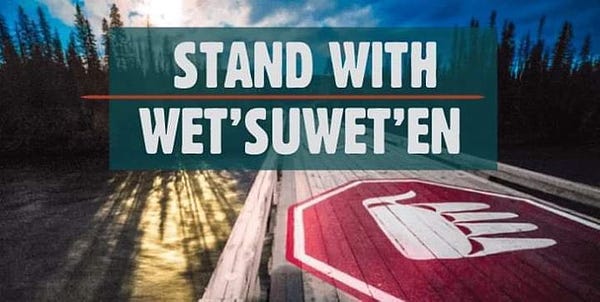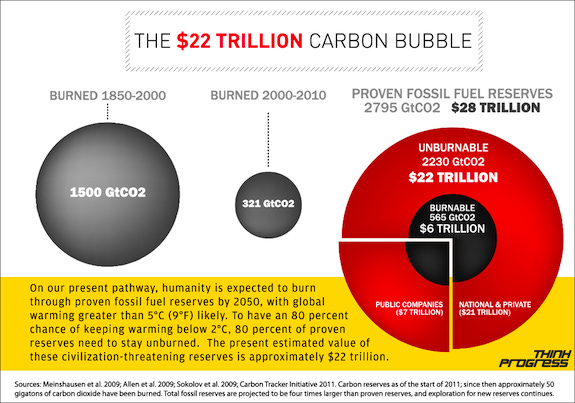Catch-22 Trillion Dollars
What if the government started arresting oil executives instead of climate activists?
PRESENTED BY WET’SUWET’EN
A Moody’s report from last month notes that “financial firms hold $22 trillion in loans and investments subject to carbon transition risk” and will need to “set clear goals for reaching net zero in their financed emissions.”
Bloomberg editor Tim Quinson opines that the $22 trillion time bomb the banks face is “not just the moral imperative–that fossil fuel use is destroying the atmosphere and life on Earth with it. It’s that their financial health requires leaving such companies behind.”1 And they won’t be able to unload it by coating it with chocolate.
Apparently it is Giving Tuesday — if you are or would like to be part of the Charitable Industrial Complex, get outside of the rich white green bubble of orgs and contribute to an environmental justice organization today. There are a few that do national work—such as WE ACT for EJ (N.Y.C. and D.C.), the Chisholm Legacy Project, the Grassroots Global Justice Alliance, and Black Millennials 4 Flint—but most effective EJ groups are local—for example, the Deep South Center for Environmental Justice (New Orleans), Little Village (Chicago), and T.E.J.A.S. (Houston). Take a moment to find an EJ organization in a community to which you have ties.
Or donate to groups like the Climate Disobedience Center and the Center for Protest Law & Litigation who support valve turners and other activists working to directly dismantle the fossil-fuel time bomb. Speaking of, there’s a rally this morning at the Canadian Embassy in support of the Wet’suwet’en land defenders who have been arrested for blocking the construction of the Coastal GasLink pipeline in British Columbia:


In Climate Journalism Industrial Complex news: Longtime WaPo climate reporter Juliet Eilperin has moved up to editing the climate team, with LA Times climate reporter Anna Phillips hired as the new Juliet by Team Bezos — send her story ideas at anna.phillips@washpost.com.
You following @climatebrad helps keep this newsletter fed. Thanks!
A decade ago, I wrote about the industry’s $22 trillion carbon bubble in unburnable fossil fuel reserves. That the number is exactly the same is coincidental—these are two related but different measurements, and a staggering amount of fossil fuels have been burned in the past decade—but the scale of the problem remains about one-fourth of global GDP.






